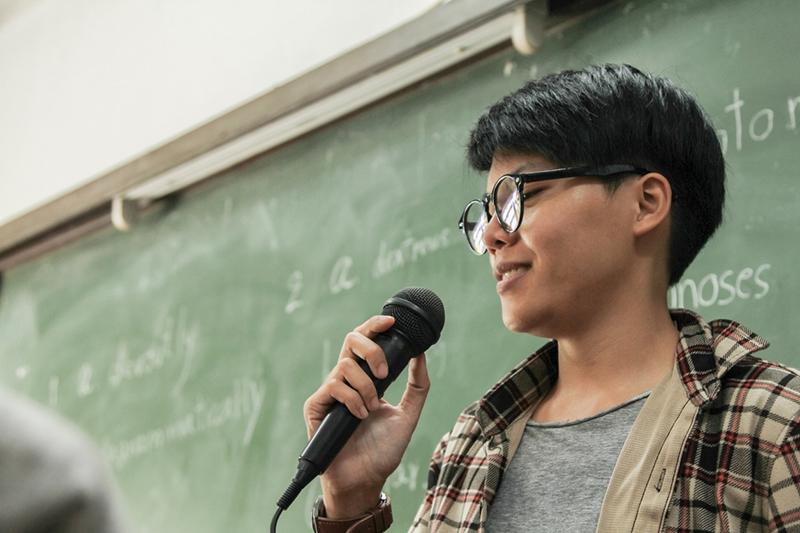
Approach with caution: why education faculty should engage public intellectualism

You may also like
Education leaders, be they deans, administrators, teachers, presidents, researchers or provosts, need to be in the public eye as public intellectuals.
Given the pressures on schools and the need for informed dialogue in educational policymaking, the above statement may seem patently obvious. However, authors in the very pages of Times Higher Education have debated this idea, ranging from cautions and reasons to engage to being burned when engaging, to tactics for engagement.
For those on university faculties, particularly those in schools of education, it may not be clear why it’s important to spend energy in this way. Most faculty publish a great deal of research and consider public scholarship of this sort to be public intellectual activity. But what is called for here is in fact engagement with a wider ecosystem of outlets, from “big media” to less-publicised but equally important outlets, in order to inform public policy plus educational and societal issues.
- Universities must promote pluralism to ward off threats to democracy
- Fake news and disinformation abounds, but what can universities do?
- How to embed public engagement into your teaching and research activities
The conversation on educational change is missing from the broad public dialogue on social needs, and we are rapidly moving towards a view that education is not a public good but, rather, an enemy of the people and democracy. Recent moves toward curricular control, de-funding educational initiatives, unfunded mandates, decreasing teacher autonomy and undermining public perceptions of the value of not only college education but universities as community contributors threaten to unleash as much quiet vitriol against human learning as we’ve ever seen.
In the face of this assault, it is essential that education faculty and leaders demonstrate the value of the research and scholarship they conduct to help the public see the value of educational scholarship and the university more broadly. And when human learning is in the cross hairs, so is scholarship, and public intellectual contributions are in danger of becoming mere fancies of the elite.
So, what is a public intellectual? First, we must understand that public intellectualism is quite different from public scholarship, and while there is a good deal of public scholarship (ie, writing articles for journals) there are precious few education faculty voices represented in the media ecosphere. Henry Steele Commager, arguably the grandfather of all public intellectualism, and proposed as the original public intellectual by Neil Jumonville, saw the role as one of journalist and historian.
Today, Doris Kearns Goodwin may be among the most obvious examples of the traditional-style public intellectual. Studying policy through the eyes of presidents, Kearns Goodwin shares her reflections frequently on network news shows such as Meet the Press. She is a faculty member and frequent author of books as well as articles in high-profile “intellectual” outlets such as The New Yorker, The New York Times, Vanity Fair, The Washington Post and others. Her insights on current events seen through a historical lens are clear and accessible to a public audience.
What can education faculty learn from her example? Are education faculty represented in the larger dialogues on school change that are in the public square? When was the last time a teacher, a scholar, an education dean, appeared in major media outlets to discuss the teacher shortage? Or burnout? Or curricular changes impacting US politics or race relations? Where is the representation of education faculty in these discussions – where is our Doris Kearns Goodwin?
We see the occasional “expert” in a particular area, but an analysis of these experts shows precious few educators on the list, particularly in those areas where educators ought to be consulted. When issues related to schools and education arise, the typical guests on podcasts and news shows or invited bloggers are journalists or pundits but rarely educational scholars. Instead, we are left with the impression that education is not a field that requires experts. Pundits may use some (basic) statistics, but little is shared from the wealth of knowledge about education and human learning that we have available from decades of research and scholarship in the area. It’s time we changed this neglect of education experts’ voices in the public sphere, and it’s essential that the media and educators invest significant energy in bringing education experts’ voices to a public audience.
One of the hurdles for educational intellectuals is the tendency to want to act. Those who see the realities of educational inequalities want to fix them rather than talk about them. And then there is our understanding of school issues as local rather than soluble at national levels. Both of these argue against educational public intellectualism. In addition, as Tom Schachtman convincingly argues, experts’ use of overly technical jargon creates further isolation from mainstream culture.
So, what should education experts who choose to engage in public intellectual work actually do? Here are possible first steps.
Identify appropriate content and hone your message to a fine point
Here, focus on specific issues that are current and that you have clear expertise on. Practise what you want to communicate in front of an audience that lies outside of other educators to ensure it is ready for broad public consumption.
Engage with millennial-relevant media outlets
TED talks, podcasts, social media and blogs/online magazines work, in addition to traditional big media outlets. This is likely the most difficult element. After all, how do you gain access to these channels? How can we convince public media producers that they need experts in the education realm, rather than just their usual journalists? An all-out blitz from education experts, faculty, leaders and administrators asking for access is not a bad first step. Being available on weekends and low news times is another way to get their attention.
Approach the work with caution
Being a public intellectual can be dangerous, requiring courage to take on controversial positions and tread on contested territory, so be prepared to potentially take a reputational hit. Politicians who disagree are anxious to disassemble tenure to make firing contrary academics easier, and your own academic colleagues may decry your efforts as pandering to fame rather than advancing the discipline.
Develop media savvy
Learn to be a concise and pithy interlocutor providing useful and direct responses to questions. The use of media coaches, including those resident within universities in the marketing and communications office, can be a good first step toward this goal. Also, reading academic work that has been translated effectively into public intellectual work will help you target your writing for a public audience.
While the issue of public intellectual engagement has been addressed in the past, the consideration of education experts in particular in that dialogue has been largely ignored. We believe that education experts at all levels have very helpful, important, compelling and robust reflections to offer public dialogues on one of the most important social issues of all: human learning.
Ali Carr-Chellman serves as the dean of the School of Education and Health Sciences and as a professor of teacher education; Davin Carr-Chellman is the chair of the department of educational administration at the University of Dayton as well as a faculty member in the Leadership for Organisations programme, both at the University of Dayton.
If you would like advice and insight from academics and university staff delivered direct to your inbox each week, sign up for the Campus newsletter.


